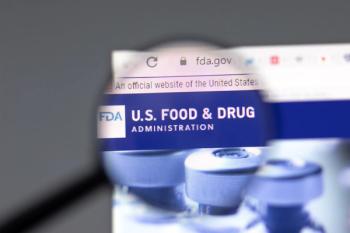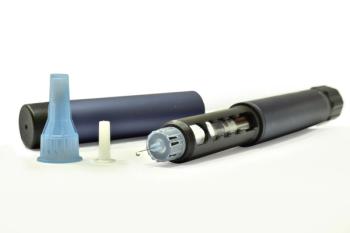
- Drug Topics March 2022
- Volume 166
- Issue 03
Cost, Culture Affect Access to Autoimmune Disease Care
Pharmacists are well positioned to address the care issues faced by patients living with autoimmune diseases.
Estimates regarding the prevalence of people with autoimmune conditions range from as few as 24 million people to nearly 50 million people1,2 across the United States.
Scientists have identified more than 80 autoimmune diseases, running
the gamut of conditions from type 1 diabetes and rheumatoid arthritis to scleroderma and multiple sclerosis. Despite their collective commonalities, many patients with autoimmune conditions—many of which fall under the umbrella of rare diseases—face access barriers, with health insurers and pharmacy benefit managers bearing the brunt of blame.3
Although industry experts agree cost is a huge barrier to treatment, views on whether this is the greatest challenge faced by patients with autoimmune diseases vary and are sometimes in opposition. However, all agree that pharmacists can have a tremendous impact in helping patients access their medications.
For Denise Summers, PharmD, BCGP, CDCES, rare disease advocate and geriatric clinical pharmacist at Landmark Health in Boston, Massachusetts, the wounds caused by financial burdens cut much deeper than the pocketbook. “One of the greatest hurdles those with rare autoimmune conditions face is continuity of care,” Summers told Drug Topics®.
Interruption of care is a topic Pam Cusick, senior vice president of Rare Patient Voice in Annapolis, Maryland, knows all too well both on a personal and profes- sional level. She shared the story of a situa-tion where a friend’s child with Crohn disease changed jobs, resulting in an insurance mix-up. The child needed an infusion but was denied treatment until her parents paid the $24,000 fee via credit card. “They got their money back, but it was a terrible experience,” Cusick said.
Cusick believes pharmacists are well positioned to help patients tackle this and other access-related issues. Pharmacists are often well versed in navigating the intricacies of the payer world. This experience allows them
to educate patients and their families about cost-saving measures. Pharma- cists can also leverage their rapport as highly influential and trustworthy health care professionals.“There is so much information out there, and they need a good resource they can trust,” Cusick said.
Engaging with a trustworthy health care provider can also help address the coverage gaps frequently exacerbated by racial, cultural, and ethnic divides. Summers pointed out that patients who are either un- or underinsured face the substantialrisk of failing treatment, as they often engage in behaviors such as reducing medication use due to costs. Nonelderly people of color, regardless of race or ethnicity, are less likely to have health insurance than White patients, according to a 2019 report conducted by the Kaiser Family Foundation.4
“There is still mistrust of the medical community,” Cusick said. “There are cultural differences pharmacists should be aware of so they can meet people where they are and help patients feel comfortable.” The differences to which Cusick referred transcend medical mistrust owing to painful history of institutional racism plaguing communities of color. Cultural beliefs, creeds, and norms can also influence outcomes. In some cultures, having an illness such as an autoimmune disease or cancer may be seen as a weakness, meaning that people from those cultures may be less likely to seek medical help.
Cusick believes pharmacists can intervene in these kinds of cases, easing the patient’s anxiety and answering questions they might find uncomfortable otherwise.5 “The biggest hurdle patients with autoimmune conditions face is connecting with others who have had their lived experience,” Cusick said. “It can be very isolating.”
References
- Autoimmune diseases. National Institute of Environmental Health Sciences. Reviewed July 9, 2021. Accessed February 3, 2022.
https://www.niehs.nih.gov/health/topics/conditions/autoimmune/index.cfm - Leading autoimmune diseases undergo robust improvement in treatment by major pharma companies. Delve Insight blog. July 21, 2021. Accessed February 3, 2022.
https://www.delveinsight.com/blog/leading-companies-in-autoimmune-diseases-market - Renfrow J. Study: payers, PBMs hinder drug access for autoimmune patients. Fierce Healthcare. May 8, 2019. Accessed February 3, 2022.
https://www.fiercehealthcare.com/payer/payers-pbms-restricting-drug-access-for-autoimmune-patients - Artiga S, Hill L, Orgera K, Damico A. Health coverage by race and ethnicity, 2010-2019. Kaiser Family Foundation. July 16, 2021. Accessed February 3, 2022.
https://www.kff.org/racial-equity-and-health-policy/issue-brief/health-coverage-by-race-and-ethnicity/ - Wiley F. Culturally competent care fights health disparities. Drug Topics®. February 2, 2021. Accessed February 3, 2022.
https://www.drugtopics.com/view/culturally-competent-care-fights-health-disparities
Articles in this issue
almost 4 years ago
Counseling Pearls: Allergic Asthma Treatmentalmost 4 years ago
Is Automated Prescription Pickup the Future of Pharmacy?almost 4 years ago
Managing Chronic Kidney Disease in Patients With Diabetesalmost 4 years ago
Black Market Boom: Protecting Pharmacy Data from Cybercrimealmost 4 years ago
OTC Review: Treatment Options for Osteoarthritisalmost 4 years ago
mRNA Vaccine Technology Updatealmost 4 years ago
mRNA Technology Leads to Advances in HIV Vaccine Candidatealmost 4 years ago
Prescribing Transparency as the Solution to Pharmacy Owner Woesalmost 4 years ago
Molnupiravir: Oral Antiviral for the Treatment of COVID-19almost 4 years ago
“Smart” Therapeutics Create Ethical ConundrumsNewsletter
Pharmacy practice is always changing. Stay ahead of the curve with the Drug Topics newsletter and get the latest drug information, industry trends, and patient care tips.























